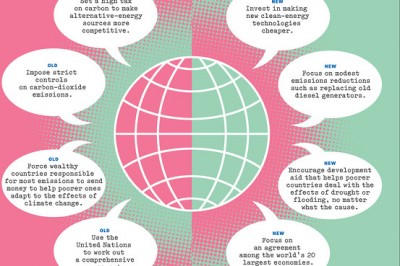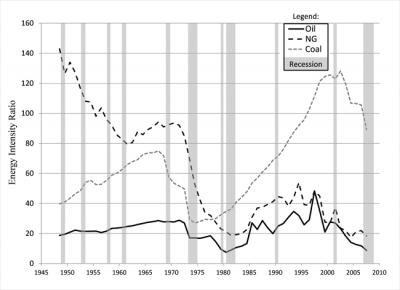Dec
7
There Must Be Cheaper Energy Supplies
December 7, 2010 | 1 Comment
Two articles appeared last week worth some study by everyone. The first spotted by Geoffrey Stiles is at a Wall Street Journal energy special pull out section. There Ted Nordhaus and Michael Shellenberger co-founders of the Breakthrough Institute, a public-policy think tank in Oakland make the case that public policy through government should direct efforts to lower energy costs.
The pair explains in substantial detail and a reasoned basis that nations should focus on lowering the cost of clean energy, not raising the cost of fossil energy. The goal? Make clean energy cheap enough to become a viable option for poor as well as rich nations. Just to add to the sense of it the pair’s premise also shows until such a change takes place, emissions will continue to rise, and no effort to regulate carbon can succeed. More adroitly the carbon matter they raise would also preclude much of the recycling of CO2 getting humanity in with nature on the carbon cycle.
This is an important read. Here at newenergyandfuel the underlying point has always been, get to the lowest cost of powering human economy. It’s just obvious that lower costs are going to improve living standards across all the people on earth. Failure in that would drive societies to fight for resources. Ah, well. Obvious isn’t always the common sense.
While not every idea that Nordhaus and Shellenberger strike this writer as optimal, the point, drive to lower energy costs in the economy should be an obvious policy choice. The pair’s work is at this writing is available at the Wall Street Journal without a subscription. The link is a recommended one for passing around – particularly to those notorious elected officials. If it happens enough, it will get read. Moreover, the officials might realize they aren’t fooling so many people as they think.
The headings in the article start with Push For Innovation, Protect – But Share, Forget the U.N., Do The Small Stuff, and Help Emerging Countries Adapt In A Different Way. Each section is as thorough as an article-sized piece is going to be. One point not covered with enough verve is the getting intellectual property out into the market. Many innovators, bless ‘em, don’t grasp that volume is where the wealth is. Bill Gates isn’t supifyingly rich because of the (dubious) intellectual property, it’s because hundreds of millions of copies are sold.
With the Nordhaus Shellenberger position in mind a paper appeared this month in Environmental Research Letters titled Energy Intensity Ratios as Net Energy Measures of United States Energy Production and Expenditures by Carey King at the University of Texas, Austin. It’s another free read.
King is introducing a new way to measure energy economic quality, the “Energy Intensity Ratio” or EIR, that is easier to calculate, highly correlated to EROI (Energy Return on Energy Investment) and in the important ways more powerful than EROI. EIR measures how much profit is obtained by energy consumers relative to energy producers. The higher the EIR, the more economic value consumers (including businesses, governments and people) get from their energy.
Now EROI has been beaten to death such to become essentially useless. As a model the concept has great value in understanding, but no company is going to be selling energy and fuel products for long if the EROI is too high anyway. Moreover and importantly, if the EIR is too low, some competitor is going to get your customers.
But the warning alarm in King’s work is when King plotted the EIR for various fuels for every year since World War II. The graphs indicate two large declines, one before the recessions of the mid-1970s and early 1980s and the other during the 2000s, leading up to the current economic recession. There have been other recessions in the U.S. since World War II, but the longest and deepest were preceded by sustained declines in EIR for all fossil fuels.
What that means, a critical point for everyone from basic research through producers to consumers and policy makers, is the consumer has to profit from the use of fuels and the energy used. Come up short on that and your economy tanks. For example, in 1972, EIR for gasoline was 5.9 and in 2008 it was 5.5. During times of robust economic growth, such as the 1990s, EIR for gasoline was well over 8.
That puts prime importance on the views of Nordhaus and Shellenberger. Fossil alternatives are going to be essential at falling costs to consumers over time. Thus, much of the policy choices of today are gigantic wastes, or in lesser terms, simply delays for the economy. These issues plus innovators not grasping the scale involved in world energy use and how their ideas could get market penetration and share should clear up the mental position of a society. Such sense would over time solve most contentious issues such as the environment, CO2 emissions, and fuel safety as well.
The cited articles are very important works. Your attention and sharing of them would help them become watershed events in the industries of energy and fuels as well as the entire world economy and human society.
Comments
1 Comment so far




Great site. A lot of useful information here. I’m sending it to some friends!